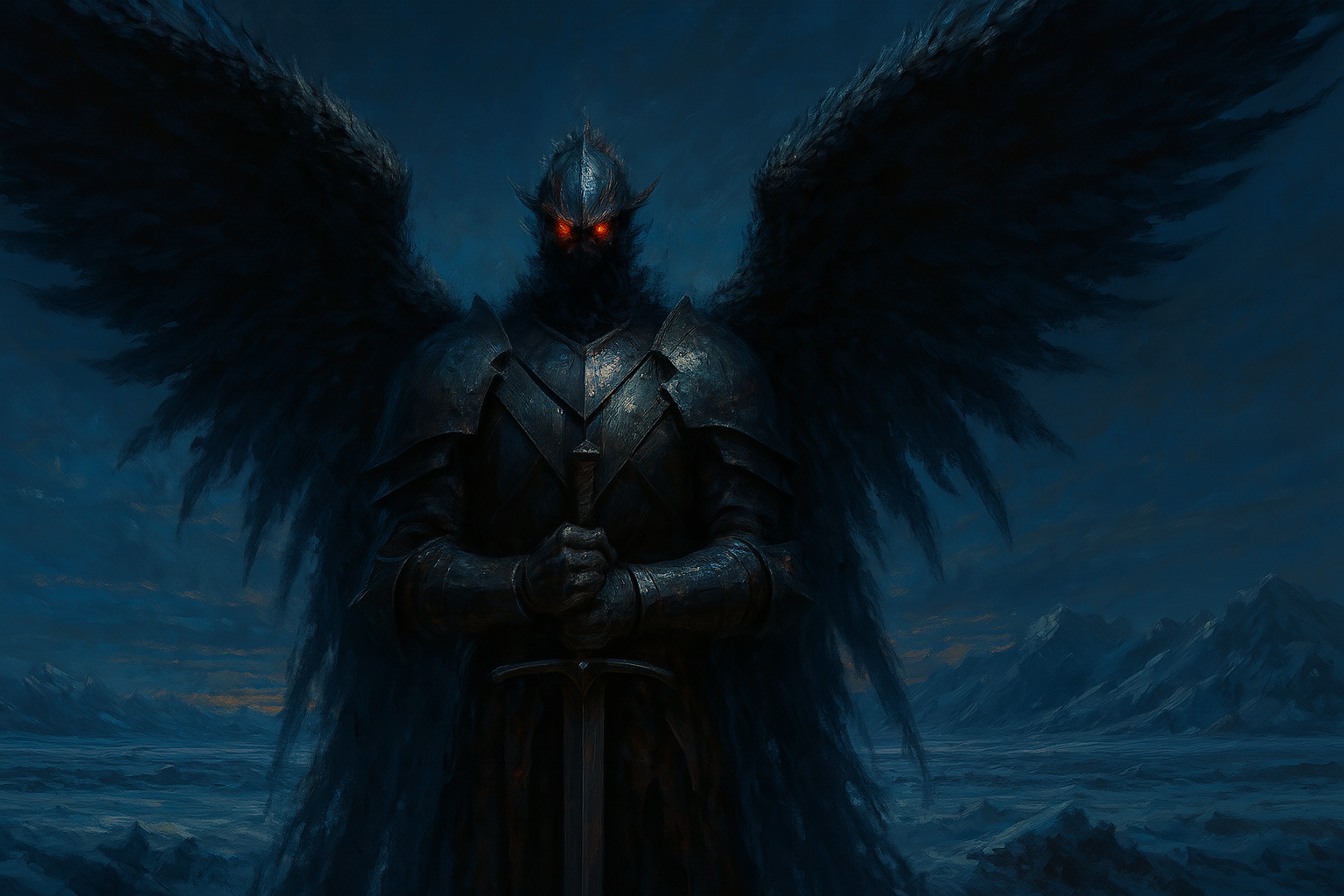Baalzebul
The Lord of the Seventh, the White Son, Hell’s Angel, the Lord of the Flies
Once radiant and proud beyond measure, Baalzebul now rots beneath a mask of vermin and arrogance. Tarnished by his own ambition and warped by millennia of bitterness, the Lord of the Seventh commands Cocytus not as it is, but as he believes it should be—a cold reflection of lost glory and deluded grandeur.
Among Hell’s armies, few despise the Heavens more than Baalzebul. Once Asmodeus’s favored general and first among the archfiends, he was forged at the dawn of creation, a luminous being said to be the first to bear what mortals now call angelic form. As Lord of That Which Flies, he led Asmodeus’s legions across the planes, training the earliest archfiends—Belial, Dispater, Moloch, and Nybbas—and claiming victory after victory in his master’s name.
When the gods descended into war, Baalzebul's loyalty was absolute. He marched at the head of the Exodus that carved Hell from the raw chaos of the Outer Planes, certain that his service would earn him a place at Asmodeus’s side. But the Prince of Darkness had other designs. With the creation of Mephistopheles and the division of Hell among many rulers, Baalzebul’s expectations were dashed. His protests turned to wrath, and in his arrogance, he dared demand a realm greater than those given to his peers.
Amused, Asmodeus listened to his once-favored son’s grievances. Then, with a word, he stripped Baalzebul of his radiant form, fusing his essence with countless biting flies—the lowliest, most loathsome creatures of decay. Humiliated but cowed, Baalzebul retreated to Cocytus, where he stews in jealous resentment, eternally scheming to reclaim the greatness he believes was stolen from him.
The Fallen Son of Hell
Despite his degradation, Baalzebul remains among the most powerful entities in Hell. His knowledge of warfare and magic is legendary, his cunning unmatched among the archfiends. Yet all his brilliance is poisoned by consuming envy and hollow pride. He envies the gifts of others, yet cannot bear to appear weak. He despises Asmodeus, yet aches for his favor. He schemes endlessly, but dares not cross the Prince of Darkness openly. The other archfiends regard Baalzebul with wary contempt. None trust him, but fewer still relish crossing him his knowledge of their strengths and secrets, learned during their tutelage under his command, remains a dangerous weapon. Though Baalzebul holds no overt aspirations to overthrow his rivals, his stinging betrayals, petty provocations, and quiet manipulations leave few untouched.Cult and Influence
Mortals drawn to revenge, power, or forbidden magic often seek Baalzebul’s favor. His worshippers, known as the Fly-Blessed, cling to elaborate rituals of flattery and false humility, desperate to avoid provoking their patron’s volatile pride. Even the boldest among them understand that to fail in reverence, or worse, to succeed too well, may earn his wrath. Those Baalzebul favors receive whispers in the dark from the buzzing mouths of infernal flies, granting them secrets of tyranny, forbidden sorcery, or hidden weaknesses. The truly devout may witness his manifestations—either in the guise of a towering, insectile devil clad in tarnished angelic armor, or as a swarm of colossal, fiendish flies descending upon the world like a plague. Yet Baalzebul serves no mortal, no cult, and no cause but his own. To pledge oneself to the Lord of the Seventh is to gamble one’s soul on the favor of a creature whose envy burns colder than Cocytus itself.Appearance
Baalzebul is most often seen as a seething mass of black flies, their buzzing forming whispered prayers and venomous secrets. When compelled to take humanoid form, he appears as a tall, broad-shouldered figure wrought from countless insects, clad in the remnants of angelic raiment—twisted, tarnished, and rotting with time.
Children
Ruled Locations


